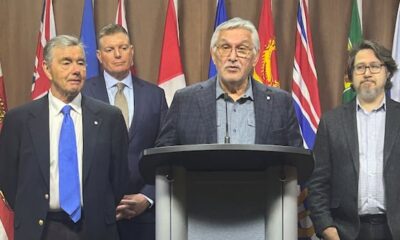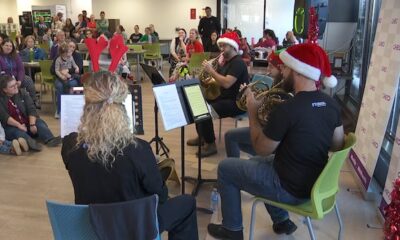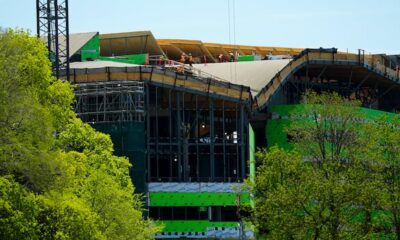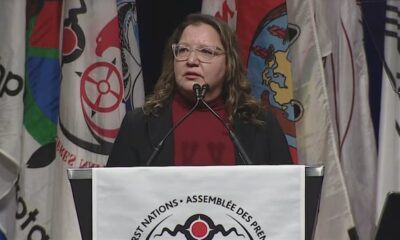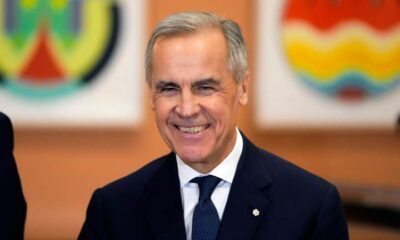Technology
Ottawa Residents Support Lansdowne 2.0 for City Revitalization
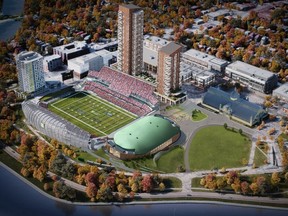
Residents of Ottawa are rallying in support of the Lansdowne 2.0 project, which aims to enhance the city’s sports and entertainment offerings. With an estimated cost of $419 million, proponents argue that the investment will significantly benefit the local economy and community engagement. Myfanwy Davies, a long-time season-ticket holder for the Canadian Football League (CFL), has expressed her enthusiasm for the initiative, having attended events at Lansdowne since 1973.
In a recent letter to the editor, Davies highlighted the positive impact of professional sports on the capital city. She emphasized that the project’s cost would be mitigated through various revenue streams, including the sale of air rights for new residential buildings and contributions from the Ottawa Sports and Entertainment Group (OSEG). This could reduce the city’s financial burden to less than $150 million.
Davies pointed out that annual attendance at Lansdowne has skyrocketed from approximately 250,000 visitors in the past to nearly four million today, thanks to the presence of five professional teams and numerous events. This surge has generated 4,000 jobs and contributed an additional $3 million to the city’s revenue, reinforcing the argument for Lansdowne 2.0 as a beneficial investment.
Addressing Infrastructure and Community Needs
Critics have raised concerns about potential traffic increases on Bank Street due to the project. However, Davies countered that public transport improvements, such as increased bus services during major events, would help alleviate congestion. The current state of the arena, she noted, poses safety issues for performers, making it essential for the city to invest in modern facilities that can attract top talent.
The letter from Davies comes alongside various perspectives from other Ottawa residents regarding city planning and infrastructure. Dr. Victor Lanctis criticized the National Capital Commission for its recent decisions, claiming that the organization needs to earn a better reputation through transparent and effective governance. He highlighted ongoing issues related to urban planning in the National Capital Region, including the preservation of iconic landmarks and the development of public spaces.
Further discussions revolve around the urgent need for better mental health services in Ottawa. Joe Veryard praised a recent announcement from The Royal, a mental health facility, regarding the establishment of a new clinic aimed at providing much-needed support for those experiencing mental health challenges. He expressed hope that the new initiative would effectively address the needs of the community, amidst concerns about previous support failures.
Economic Challenges and Community Development
Several residents have voiced their concerns about the impact of external pressures on Canada’s economy, particularly in relation to the automotive industry. Dave Currier urged the Canadian government to pivot towards supporting domestic manufacturing, suggesting that the country could explore partnerships with non-American car manufacturers to bolster local jobs and reduce dependence on U.S. companies.
As the city grapples with ongoing construction and infrastructure challenges, residents like Fran Dawson have criticized the lack of efficient planning, which leads to traffic gridlock. Many are calling for a reevaluation of current construction projects to minimize disruption to daily life and improve transportation efficiency.
In the context of urban development, community members are advocating for a balanced approach that supports local businesses while enhancing the living environment. Carolyn Herbert proposed the construction of low-rise apartments and primary-care clinics within walking distance of commercial areas, emphasizing the importance of maintaining affordable services for families.
As discussions continue around Lansdowne 2.0 and other urban development projects, Ottawa residents remain committed to advocating for initiatives that not only enhance the city’s cultural landscape but also address the pressing needs of its citizens. The city council’s upcoming vote on Lansdowne 2.0 will be crucial in shaping the future of Ottawa’s community and economy.
-

 Politics4 weeks ago
Politics4 weeks agoSecwepemc First Nation Seeks Aboriginal Title Over Kamloops Area
-

 World5 months ago
World5 months agoScientists Unearth Ancient Antarctic Ice to Unlock Climate Secrets
-

 Entertainment5 months ago
Entertainment5 months agoTrump and McCormick to Announce $70 Billion Energy Investments
-

 Science5 months ago
Science5 months agoFour Astronauts Return to Earth After International Space Station Mission
-

 Lifestyle5 months ago
Lifestyle5 months agoTransLink Launches Food Truck Program to Boost Revenue in Vancouver
-

 Technology3 months ago
Technology3 months agoApple Notes Enhances Functionality with Markdown Support in macOS 26
-

 Lifestyle3 months ago
Lifestyle3 months agoManitoba’s Burger Champion Shines Again Amid Dining Innovations
-

 Top Stories2 months ago
Top Stories2 months agoUrgent Update: Fatal Crash on Highway 99 Claims Life of Pitt Meadows Man
-

 Politics4 months ago
Politics4 months agoUkrainian Tennis Star Elina Svitolina Faces Death Threats Online
-

 Sports5 months ago
Sports5 months agoSearch Underway for Missing Hunter Amid Hokkaido Bear Emergency
-

 Politics5 months ago
Politics5 months agoCarney Engages First Nations Leaders at Development Law Summit
-

 Technology5 months ago
Technology5 months agoFrosthaven Launches Early Access on July 31, 2025

